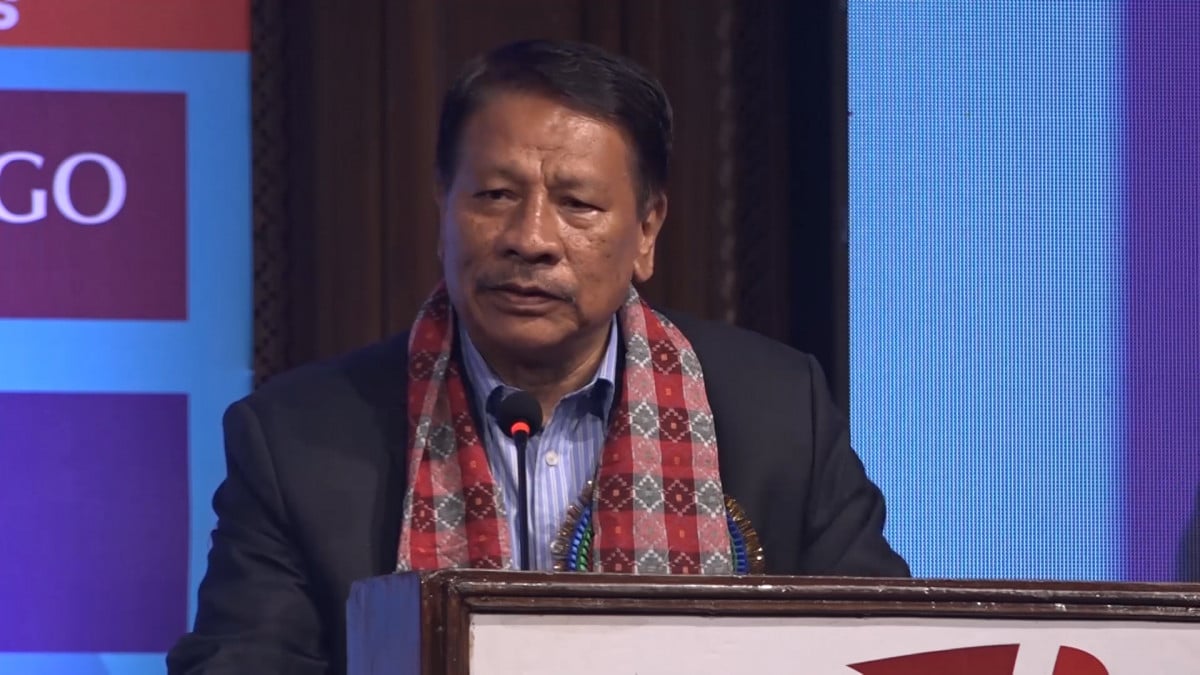

KATHMANDU: Deputy Prime Minister and Minister for Urban Development, Prakash Man Singh, has raised concern over climate change consequences in Nepal, demanding climate justice.
In his address to a session on ‘Cities and Climate Crisis’ held on Tuesday during the 12th session of the World Urban Forum ( WUF12) in Cairo Egypt, the Deputy Prime Minister said Nepali is highly vulnerable to climate change. “For Nepal, the climate crisis is becoming our day-to-day reality. We are one of the most vulnerable countries to climate change, and we can already see its devastating impacts on lives, livelihood, and infrastructure, both in rural and urban areas. This issue of the extreme impact of climate change on snow-capped mountains was highlighted by the Secretary General of the UN in his visit to Nepal in 2023,” he said.
Stating that Nepal knows the worst is still to come, as it is struggling to meet the 1.5-degree target and unabated global warming melting the Himalayas, with immediate impacts to the settlements downstream, extending across the borders, the Minister apprised the Forum that unprecedented rainfall in September is a recent example of what we are going through, impacting lives across the country and the highest-ever rainfall in the Kathmandu Valley’s recorded history.
“In a single event, 250 lives were lost and over 500,000 households were affected, about 11,000 were displaced, straining the housing needs,” he added.
“We will see increased extreme climatic events, like cloud bursts, severe floods, drought, high temperature and regression in climate promise that increases our worry on the worst that we need to face,” he said.
The Minister stated that Nepal on the other hand is rapidly urbanizing, with over half of the population living in urban and peri-urban areas. “There are critical capacity gaps in planning and adaptation at all levels.”
During the session, he went on to say that in the new federal structure, Nepal’s priority is to strengthen the multi-level governance for sustainable development and the need for strongly integrating climate responsiveness in development decisions.
Adaptation is a major priority of Nepal to take urgent action to reduce vulnerability, according to him.” We have reviewed our urban policy and development strategies aligned in the federal context and are climate responsive. Nepal approved the National Adaptation Plan, which requires USD 47.4 billion to implement 64 programmes until 2050, while the government can only contribute USD 1.5 billion.”
As he said, Nepal requires global support with easy access to innovative adaptation finance arrangements to tackle climate challenges.
“Hence, this session is critical for us to demand climate justice and to seek technical collaboration and assistance to work on city-level climate adaptation for inclusive and resilient urbanization,” the Minister asserted.